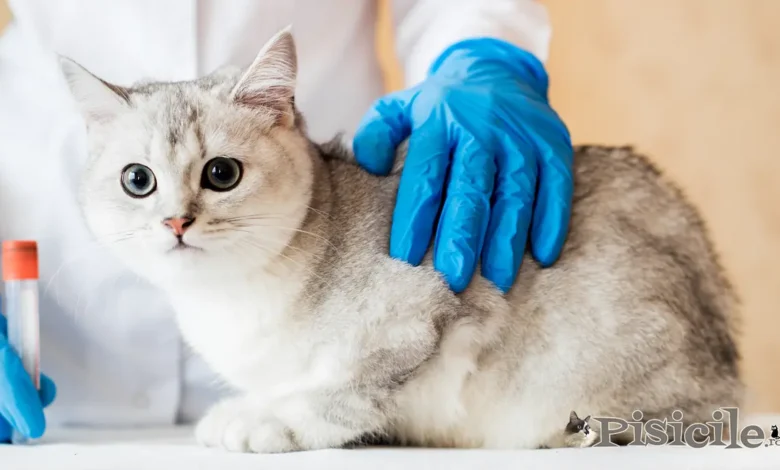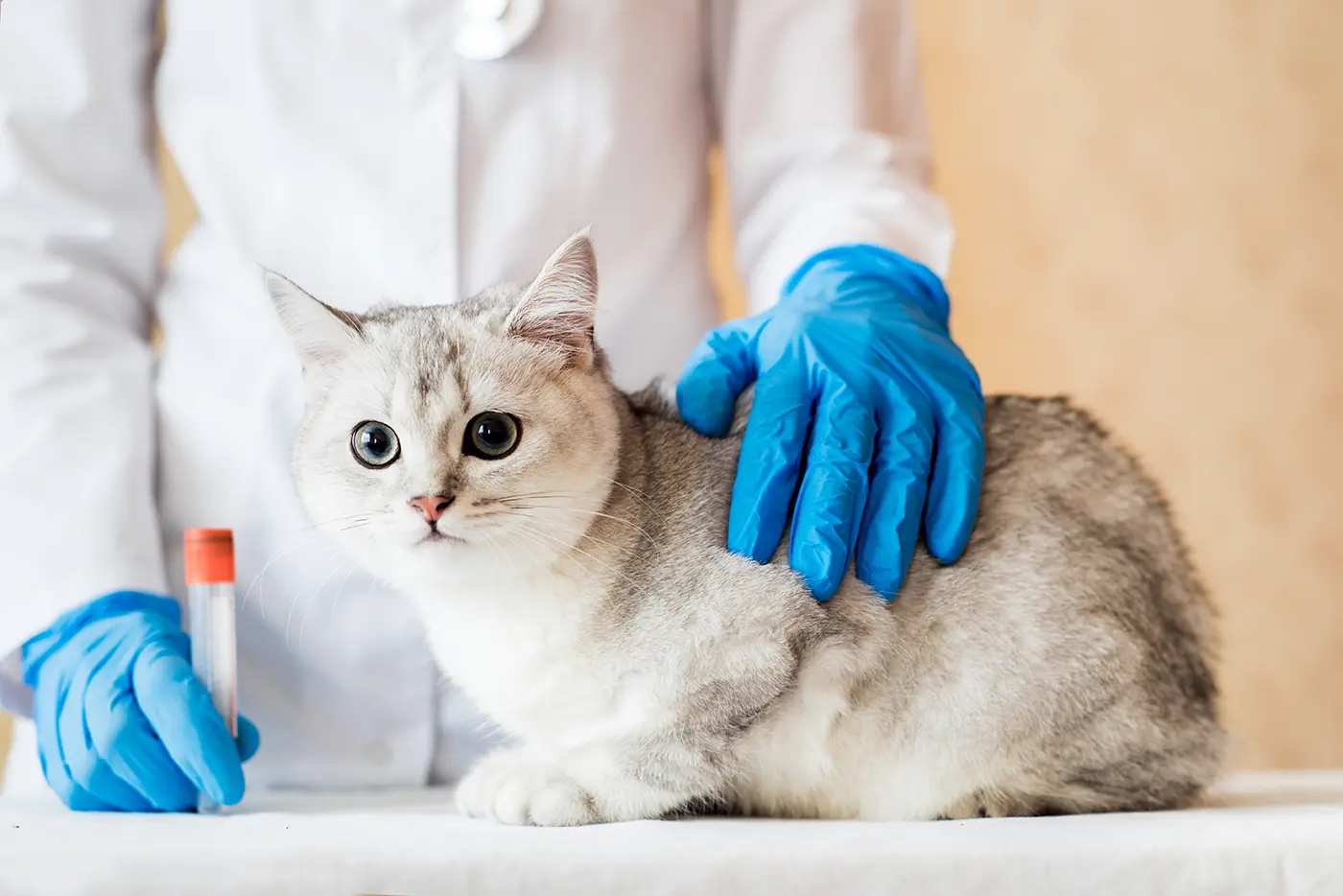
Sterilization of cats and castration of kittens is an ever-present topic for feline owners. In this article you will find useful information about sterilization / castration.
When you have made the decision to have a cute little furry friend, it is difficult to imagine that at some point he will be able to have puppies. That's why you should think about neutering your cat some time before.
I know, opinion is divided. Many people believe that it is good to let the cat give birth at least once, and then spay her. Perhaps even more consider that the sterilization of cats at the age of 8 months - 1 year is the best solution.
If you are of the opinion that the cat is good to give birth to kittens, then you must keep in mind that both the cat and the kittens require a lot of attention, especially in the first days of life. In addition, you need to support the cat during the period of gestation and nursing of the kittens. About how we can help the cat during pregnancy and after birth, we have an article which is definitely helpful for you. The puppies will grow up in a few months and you will need to find them responsible owners or make room for them in your family.
On the other hand, those who choose to sterilize the cat that has reached reproductive maturity must know when the cat can be sterilized, what the sterilization operation entails, what the recovery period is like after the operation and what the risks are.
Sterilization of cats is a relatively simple operation for routine veterinarians, which involves the removal of the sexual reproductive organs. The neutering operation requires general anesthesia, so your cat will be unconscious during the operation and will not feel pain. So, if you have decided to sterilize your cat, first go for a pre-operative checkup to make sure that everything is in order and that your cat will be able to withstand the surgery.
anesthetize it is a fairly safe procedure, and the unpleasant events that may occur during it may be due to undiscovered diseases of the body. That is why it is important to insist on a thorough pre-operative control and, if necessary, subject the furry to all the necessary investigations.
Surgery it takes between 20 and 40 minutes, is usually done in the morning, and if everything goes well, you can take your furry friend home a few hours after it's over. A cat to be sterilized must not eat the night before, it will only drink water, and on the morning of the operation it will neither drink water nor eat. After the intervention is over, the cat will be a little more dizzy, sleep more, may be a little more agitated or aggressive, and may experience loss of balance. It is recommended that she sit quietly in her crib, as close as possible to the water and food bowls, not in high places, to limit her movements and not exert herself, because excessive effort can lead to the opening of the operation and implicitly to the complications that will follow.
Specialists recommend that the sterilization of cats should be done at an early age, making recovery faster and easier, giving better results in terms of the feline's health. Specialists say that sterilized cats become more polite, more attached to humans, more affectionate, healthier, can live longer and can be kept in groups without conflicts and unwanted pregnancies. After the operation, the cat lacks appetite. So food must be reintroduced gradually: he will be given small amounts of food and clean water. If the cat vomits, don't force it, take the food in front of it and try again the next day.
Similar to people, in the post-operative period, cats need more affection and care from us, so do not neglect them or deprive them of your love and warmth. Contraceptive methods are not recommended: pills, injections, drops. These are administered for eight days, and after treatment the cats can go into heat again. Used frequently and in excess, they lead to the appearance of tumors and reduce the cat's healthy life span.
Subject
Sterilization of dogs (castration)
Males reach sexual maturity around 8-9 months of age. Once they reach sexual maturity, males may undergo behavioral changes: they may become more aggressive, have a decreased appetite, become agitated, noisy, and tend to mark their territory by sprinkling urine on things in the house.
In the case of dogs, the sterilization procedure involves the removal of the testicles. After the castration operation, motans do not need much time for recovery. The veterinarian will advise you to stay with him during the first post-operative night and will prescribe anti-inflammatory and analgesic treatments. It would also be useful not to allow the motan to jump from heights, to have the resting place as low as possible and as close as possible to the food and water bowls, to avoid possible accidents that could endanger the operation.
In the case of many Motans, these it recovers very quickly, returning to normal activities from the very next day and going outside.
As a side effect, the tendency to gain weight can appear, but this aspect can be remedied by changing the diet according to the advice of the veterinarian and by stimulating the motan with different activities and toys, so that he does as much exercise as possible.
Sterilization of cats
Females reach sexual maturity around the age of 7-8 months. Once they go into heat, behavioral changes can occur, such as a change in the type of meow, increased agitation or even affectionate or aggressive behavior, decreased appetite, and serious conditions such as false lactation and ovarian cysts can occur.
For females, spaying involves removing the uterus and ovaries or just the ovaries.
Compared to males, females require slightly longer recovery time because the operation is more complex. Your cat will wear a collar to prevent licking or biting of the incision area, will be given painkillers and anti-inflammatories for three days, will have post-operative check-ups at three and ten days, and will not be allowed outside during this time. If the vet used non-dissolvable sutures, they should be removed within seven to ten days after surgery.
After you bring your cat home, it's important to check the surgery area for any signs of excessive redness, bleeding, or discharge. If you notice anything alarming, do not try to clean or apply ointments to the area; call the vet and take the cat to the hospital.
During the ten days of recovery, you should not bathe the cat or brush it.

As for females, sterilization brings many benefits: they become gentler, they will not stray too far from home, thus reducing the risk of road accidents, aggression or poisoning by other animals or malicious people; it lowers the risk of contracting diseases such as feline AIDS and feline leukemia, the cat will have a low risk of developing uterine infections and, if spayed at an early age, the chances of developing mammary and ovarian cancer are very low.
As side effects, cats may experience weight gain and urinary tract problems. If you notice that your cat is urinating more often, has bloody urine, or has pain when urinating, consult your veterinarian.
Sterilization of cats it is extremely important, both in the case of males and females, because the abandonment rate has increased alarmingly and no "baby" deserves to live on the streets alone, hungry, chased and cold.
So, if you choose to sterilize your cat, think about the "mainland" ones as well and raise an alarm so that more people find out and get involved in the sterilization of stray animals and realize that it is an advantageous fact for both society, as well as for the lives of animals. It all starts with us, and for animal welfare it is worth trying to educate and inform even the least informed. By neutering cats, you show that you love your baby, by neutering you reduce the abandonment rate and the torment rate cats go through during the mating season.




6 Comments